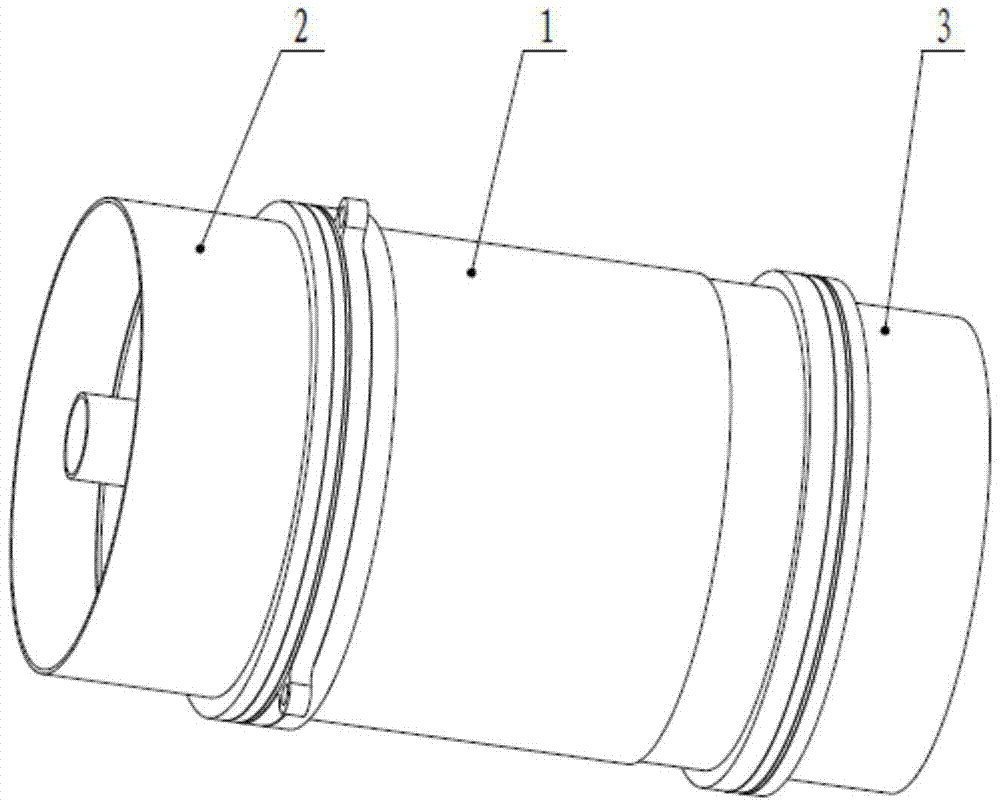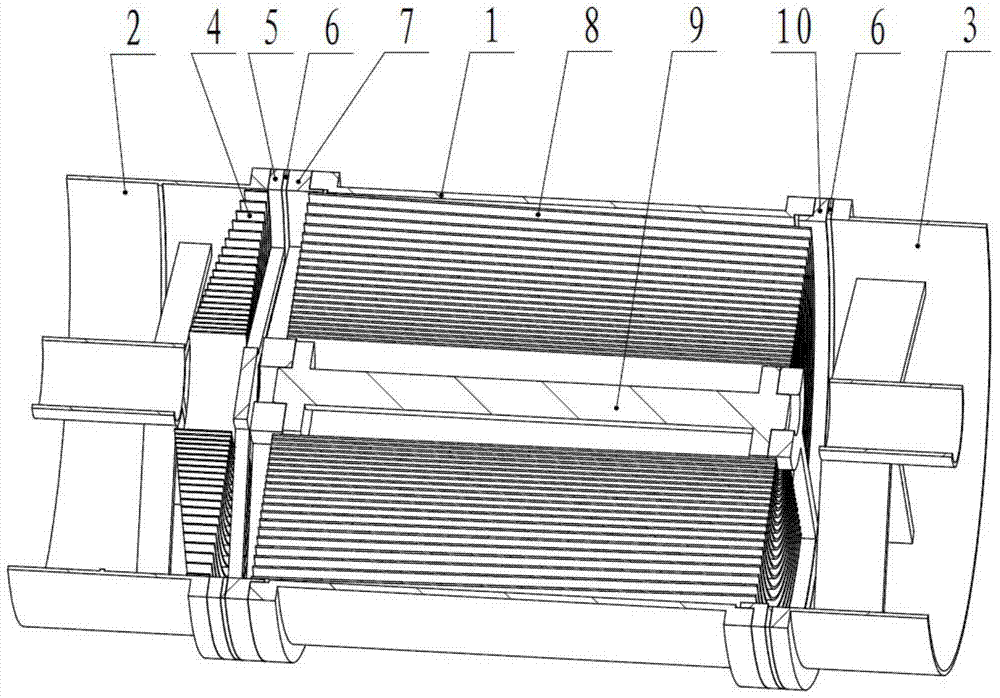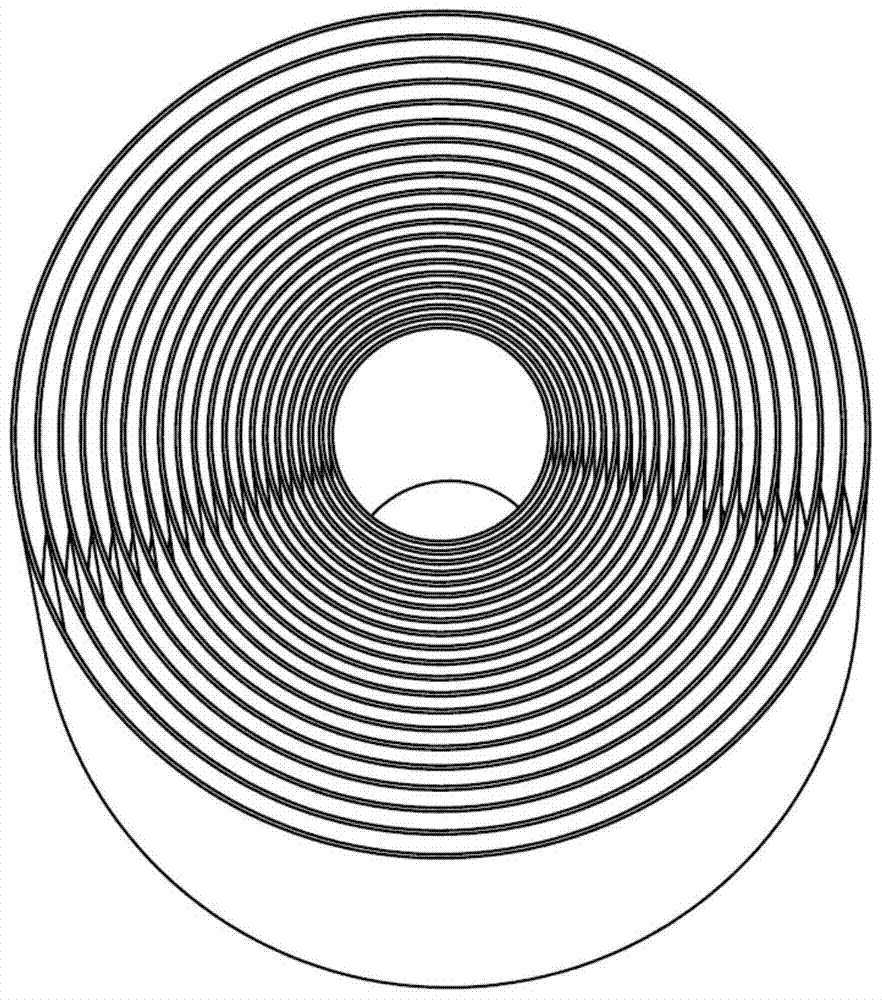A multi-layer nested conical X-ray grazing incidence optical lens
An optical lens and X-ray technology, applied in the field of space optics, can solve the problems of complex parabolic primary mirror and hyperboloid secondary mirror, reduce the total reflectivity of the optical lens, and difficult installation and adjustment, so as to increase the effective light-collecting area , Large effective light-collecting area and strong ability to resist stray light interference
- Summary
- Abstract
- Description
- Claims
- Application Information
AI Technical Summary
Problems solved by technology
Method used
Image
Examples
Embodiment
[0042] In this embodiment, in the multi-layer nested conical X-ray grazing incidence optical lens, the cone angle of the truncated cone of the lens in the lens layer 8 is 1° to 3°, and the cone angle gradually decreases from the outer layer to the inner layer. The thickness of the lens ranges from 0.2mm to 0.25mm, and the thickness of the outer layer gradually decreases from the outer layer to the inner layer to maintain basically the same ratio of lens thickness to lens diameter. The length of the lens is 110mm, the field of view is ±7.5arc min, the focal length is 1200mm, and the number of nesting layers is 21. The diameter of the end of the outermost lens near the front spoke plate 7 is 107mm, and the end of the outermost lens near the rear spoke plate 10 The diameter is 102mm, the diameter of the end of the innermost layer lens close to the front spoke plate 7 is 27.2mm, the diameter of the end of the innermost layer lens close to the rear spoke plate 10 is 26mm, the surfac...
PUM
 Login to View More
Login to View More Abstract
Description
Claims
Application Information
 Login to View More
Login to View More - Generate Ideas
- Intellectual Property
- Life Sciences
- Materials
- Tech Scout
- Unparalleled Data Quality
- Higher Quality Content
- 60% Fewer Hallucinations
Browse by: Latest US Patents, China's latest patents, Technical Efficacy Thesaurus, Application Domain, Technology Topic, Popular Technical Reports.
© 2025 PatSnap. All rights reserved.Legal|Privacy policy|Modern Slavery Act Transparency Statement|Sitemap|About US| Contact US: help@patsnap.com



